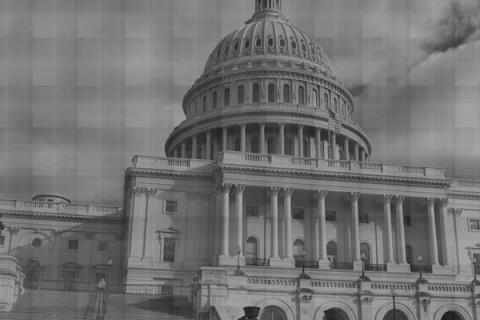As the election nears, a disturbing phenomenon is spreading across American politics. State leaders are initiating last minute purges of voter rolls. To the unquestioning observer, it appears that these are attempts to purge ineligible voters. As details and statistics come to light, some have begun to question these supposed attempts to combat voter fraud. In the last two weeks, IVN has reported about the situation in Florida.
First, the Republicans attempted to purge the voter rolls, citing the danger of non-citizen voters. Then the federal Justice Department moved into the partisan battle. While the Florida purge proved controversial, it only affected a small number of votes. Texas, however, has embarked on a voter purge that could dwarf the Florida controversy. The tactic is simple: in an election year, remove voters from the registration lists, because they are supposedly ineligible. The Houston Chronicle reports that this purge is broad in scope.
"Statewide, more than 1.5 million voters could be on the path to cancellation if they fail to vote or to update their records for two consecutive federal elections: One out of every 10 Texas voters' registration is currently suspended. Among voters under 30, the figure is about one in five."
The problem in Texas extends beyond cancelling voters who have been inactive for several years. Voters are first suspended, and ultimately cancelled. Voter registrations can be cancelled for many reasons, including failing to reply to verification letters, or sharing a name with someone who becomes ineligible for any reason. Texas' voter purge is resulting in widespread attempts to disenfranchise eligible voters. The Chronicle found that
"Statewide, 21 percent of the people who received purge letters later proved they were valid voters, compared with 16 percent in Harris County... Other counties had higher percentages: 37 percent of voters who received removal letters in Galveston County were valid voters, 40 percent in Bexar County and 70 percent in Collin County."
Let's put this in perspective. Up to 7 out of 10 of those initially slated to be purged were wrongly placed on the list. This only includes those who actually went to the trouble of proving their eligibility. The Burnt Orange Report points out that the culprit is the same as in Florida: faulty databases.
"County election offices reportedly utilize an unreliable 'matching' method to identify voters to target for removal from the rolls, where voter registration records are matched to lists of individuals who are ineligible to vote. Such lists include deceased persons, persons with disqualifying criminal convictions, and voters who claimed to be non-citizens to avoid jury duty. To be targeted for removal, all that may be required is that you share a last name and birthdate with someone who has died or been convicted of a crime. This matching method yields predictable errors, and it has already led to legitimate voters being targeted for removal from the voter rolls."
There is also a human element, and this is where the real controversy comes in. The decision to purge voters is ultimately up to state and local partisan politicians, who are often motivated by political pragmatism, not election integrity. The minority party warns of the abuse and alleges a power play to sway the election. Democratic Congresswoman Sheila Jackson Lee said in a press release:
"I am deeply concerned about the systemic and possibly illegal voter purge happening in Texas right now... In my opinion, these actions by the Texas Secretary of State’s Office have only one purpose: to disenfranchise certain voters... As with legislation introduced in various states around the country the true purpose of the purging is the disenfranchisement of eligible voters especially the elderly, young voters, students, minorities, and low-income voters."
Lee's press release cited the Voting Rights Act, speculating that the purge may be discriminatory. While this criticism from the opposition party is predictable, it strengthens the point of these purges: control over voters. The party in power controls the voter rolls, and the party out of power cries foul. When there is a change in majority party, the positions are reversed. The problem is ingrained in the system. Independent voters lose out either way. The Burnt Orange Report summarizes the problem quite well:
"While removing duplicates and keeping voter rolls up-to-date is both reasonable and legally necessary, our current procedure for purging the rolls doesn't do enough to protect legitimate voters. It also seems that the current procedure may rely too much on the discretion of elected officials to target registrants for removal and initiate the removal process."
State and local officials across the nation do have a defense. First, they claim that this is necessary to ensure voter rolls are updated and correct. Second, they point out that they must use flawed databases because the federal government will not give them access to more accurate databases demonstrating citizenship.
This disturbing trend shows something independent voters may already realize: the government has a lot of influence on the voting process, and that power corrupts. Americans have an exalted vision of voters controlling the government, but most of the time the government has power over the voters. Nowhere is this more evident than in Texas or Florida, where the right to vote can sometimes rest in the hand of county officials leading election year purges. The independent voter must stand up. The right to vote is the last vestige of consent and of our ideal of a government of the people, by the people, and for the people.

